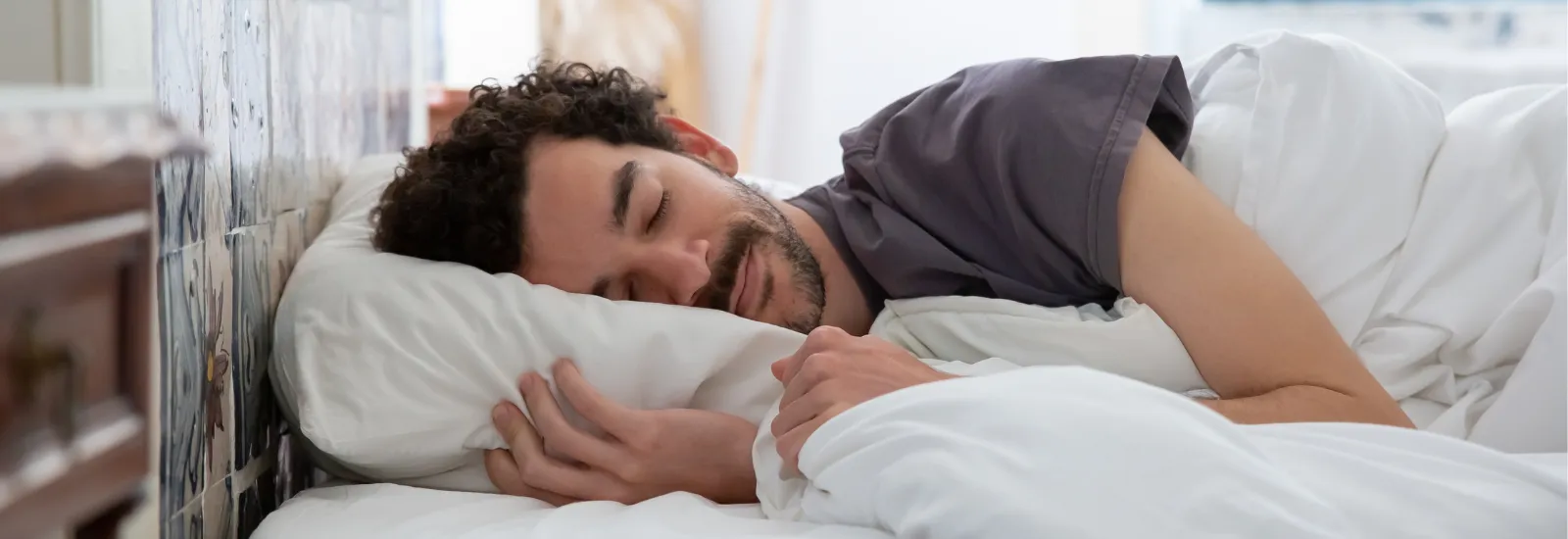
7-foods-that-help-you-sleep-and-other-tips-for-catching-zs
4-minute read
Not only does a healthy diet keep your waistline in check
and protect against disease, it also can help you get more z's. If you're
having trouble getting some shut-eye, add specific foods that help you sleep to
your diet — and avoid those that don't.
1-in-3 chance of insomnia
According to the American Academy of Sleep Medicine, up to 35%
of adults experience insomnia, an inability to fall or stay asleep, at some
point in their lives.
Occasionally missing a good night's sleep is pretty common
and nothing to be too concerned about. But if you have lots of sleepless
nights, you probably have insomnia, which isn't good for your health. There are
two forms of insomnia:
- Chronic insomnia — With this condition, you have trouble sleeping three or more times a week for three months or longer. This is the less common type of insomnia, with about 1 in 10 people experiencing it.
- Short-term insomnia — Like chronic insomnia, you have trouble sleeping three or more times a week, but the condition generally resolves within three months. Short-term insomnia is twice as common as chronic insomnia.
Other common symptoms of insomnia include fatigue,
difficulty concentrating, increased irritability, or moodiness. Chronic poor
sleep also increases your chance of having an accident due to sleepiness as well as your risk
for cancer, heart conditions, and obesity.
Improve sleep with these 7 foods
No single food will immediately put you to sleep, but
regular consumption of certain foods might help. In addition to containing
other ingredients that are good for sleep, many of the foods listed below
affect serotonin, which helps regulate your sleep cycle.
- Cherries — Consumed whole or in juice, cherries, particularly
the tart variety, may aid in sleep. They also contain antioxidants, which
protect your body from insomnia-related conditions, such as heart attack
and cancer.
- Herbal
tea — Chamomile and other herbal teas
contain ingredients that promote sleep. These may help you fall asleep
faster and stay asleep longer.
- Leafy
green vegetables — In one study, medical
students in Pakistan who ate more
leafy greens got better sleep than those who did not.
- Milk — Milk has melatonin, which helps your body get into
a good sleep cycle, and tryptophan, an amino acid that helps produce
sleep-inducing chemicals. Warm milk may be more effective than cold milk
since warm liquids can have a calming effect.
- Nuts — Certain types of nuts, including pistachios,
cashews, and walnuts, have melatonin. Peanut butter contains tryptophan.
- Salmon — Fatty fish, such as salmon, contain many vitamins
and minerals, some of which may help your body regulate serotonin. Vitamin
B6 and magnesium, also found in salmon, can have a positive impact on
sleep.
- Soybeans — These contain phytoestrogens, which mimic estrogen
to modulate sleep quality and duration.
Can food make insomnia worse?
There are foods that help you sleep and foods that do the
opposite. Some of the biggest sleep stealers are foods high in refined carbohydrates. Common culprits include:
- Cakes
- Cookies
- Sodas
- White bread
These high glycemic index foods are low in nutrients and
full of empty calories. You'll experience a quick bump in your blood sugar,
followed by an equally quick drop. This sudden drop makes it hard to sleep.
Acid reflux can also lead to tossing and turning in bed.
Avoiding certain acid reflux triggers — smoking and fatty foods, for example — can help
you sleep better.
It's also a good idea to skip late-night snacks and alcohol.
Alcohol may help you fall asleep, but the effect doesn't last. Alcohol can
cause you to sleep poorly, leaving you feeling unrested in the morning.
Sleep tips beyond your fork
Before loading up on foods to help you sleep, keep in mind
no food guarantees a refreshing sleep. Practicing good sleep hygiene is also
important.
For the best chance at a good night's sleep, try the
following bedtime hacks:
- Avoid caffeine after lunch. Caffeine is a stimulant, which keeps you alert. If you nix coffee, tea, and sodas but still struggle to sleep well, check your medication labels. Some prescription and over-the-counter medications contain caffeine.
- Exercise regularly, but not a few hours before going to bed. Working out too close to bedtime can make it hard to fall asleep. However, some calm, gentle stretching may help.
- Get outside every day. Your internal clock helps you know when to go to sleep. Soaking up a little sun every day helps your internal clock function properly. Aim for at least 30 minutes daily.
- Go to bed and wake up at the same time each day. Spend the hour before bed getting ready to sleep. Go through the same relaxing routine every night.
- Make your bedroom a sleep haven. Keep it cool and dark, and eliminate as much noise as possible. Make sure your phone and other electronic devices are set to night mode, so the blue light from their screens doesn't keep you awake.
Need a little more
help getting good quality sleep? Visit the Reid Health Sleep Center.

